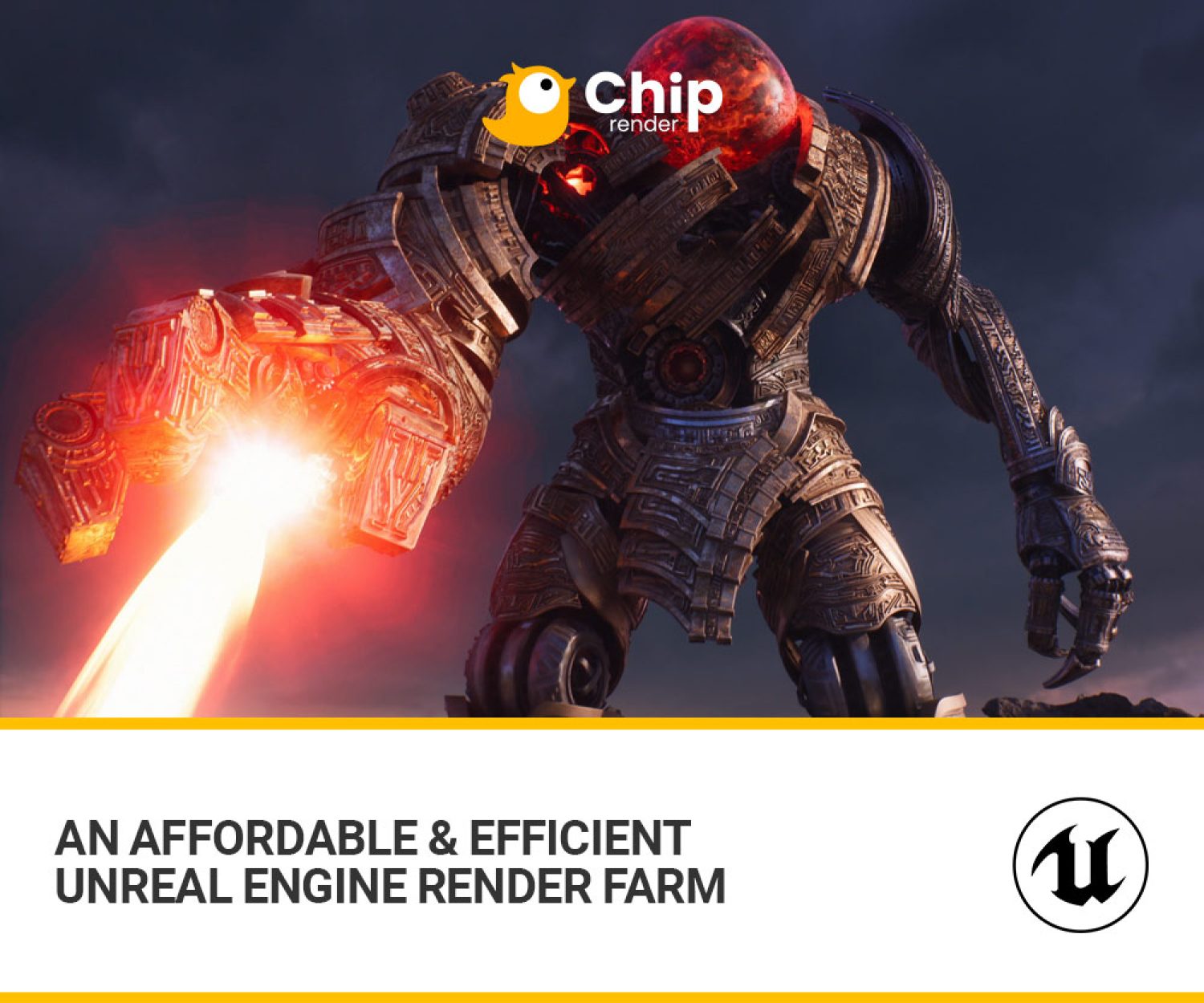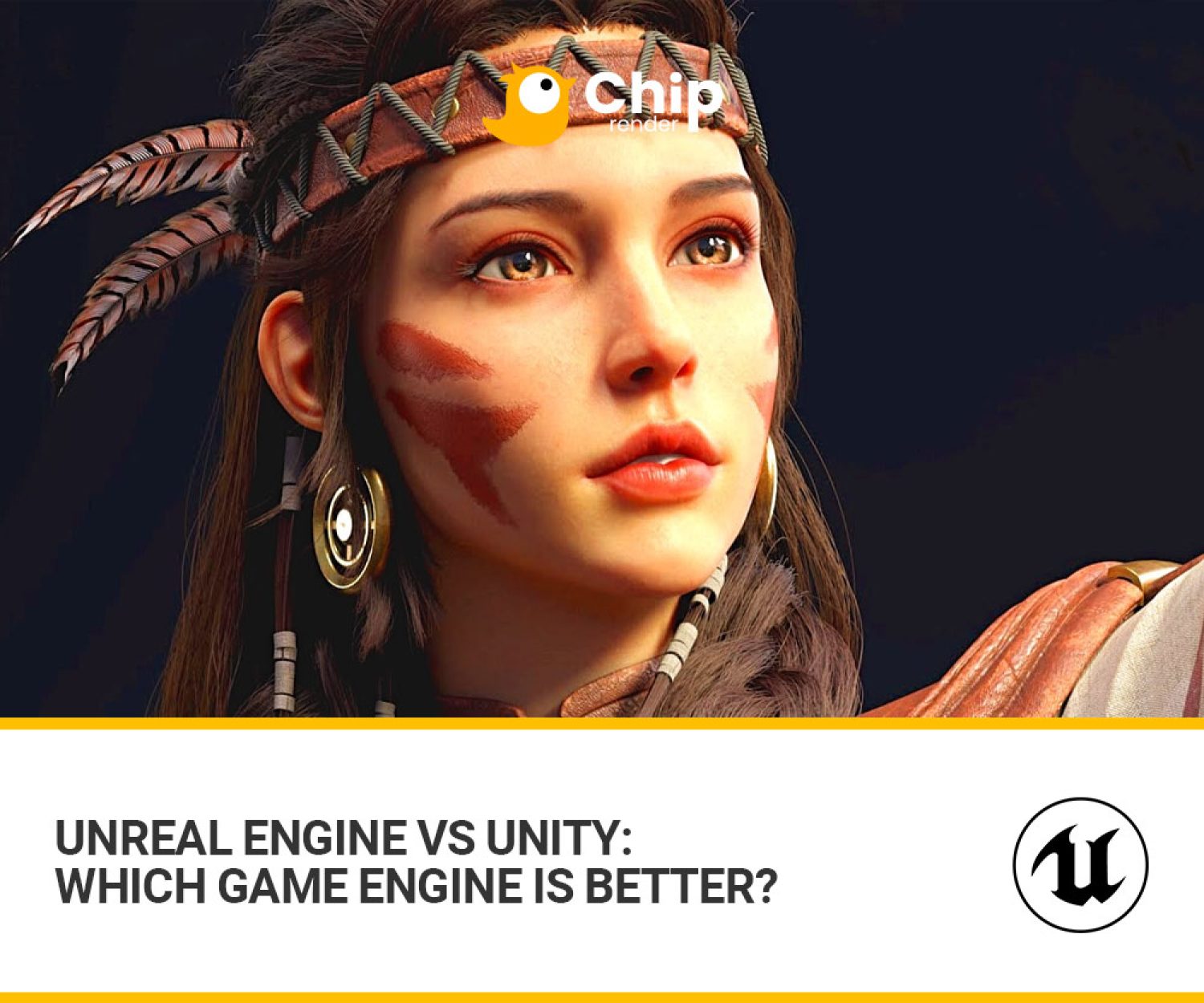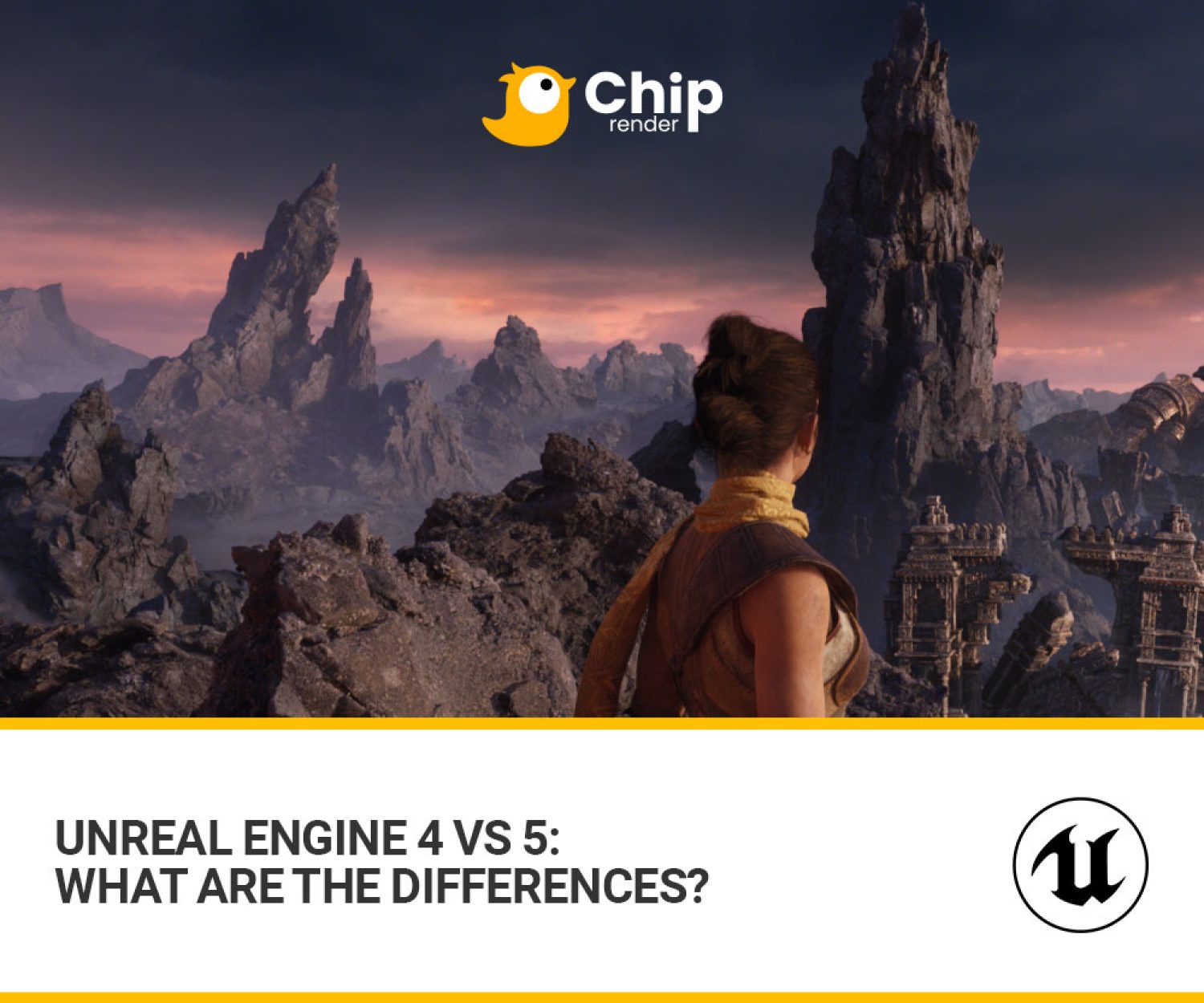Discover Unreal Engine vs Unity: Which game engine is best for your game project?
Unreal Engine and Unity are two powerful game engines in the gaming industry. Game developers use them to create interactive video games, simulations, and other visualizations.
In this blog, Chip Render will show you how Unreal Engine vs Unity are different, then you can choose the right tool for your game project.
Unreal Engine vs Unity: What are they?
Unreal Engine is a powerful game engine developed by Epic Games in 1998. It is widely known for its advanced graphics capabilities, high-quality real-time rendering, and diverse platform support. Specifically, Unreal Engine offers features like physically-based rendering, dynamic lighting, and visual effects for game development. It supports many platforms including PC, consoles, mobile devices, and VR/AR headsets. Also, it provides a marketplace for assets and tools so that developers can bring their creative visions to life.
On another hand, Unity is also a strong and cross-platform game engine, developed by Unity Technologies in 2004. Then, it becomes popular with its ease of use, flexibility, and support for both 2D and 3D game development. In particular, Unity is compatible with various platforms such as iOS, Android, Windows, macOS, Linux, and popular gaming consoles. Moreover, it has a robust asset store, where developers can find a wide range of assets, scripts, and plugins. From that, they can enrich their game development projects.
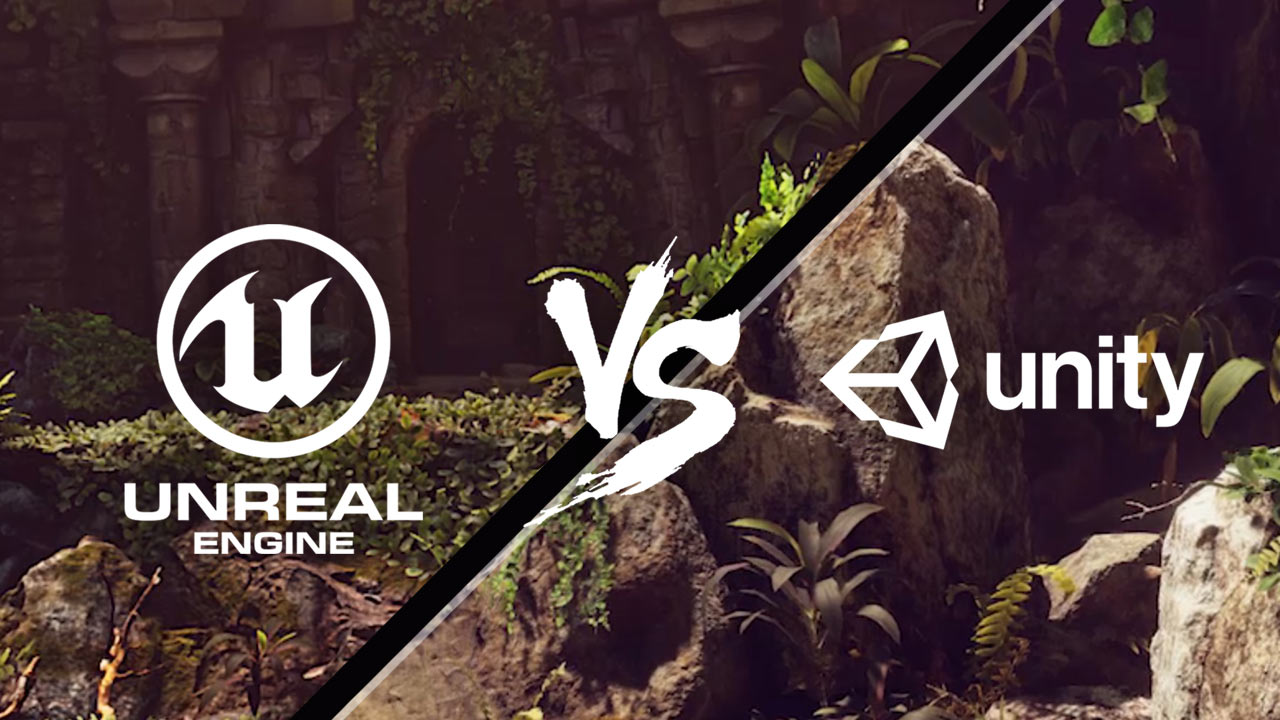
Unreal Engine vs Unity image via quixel.com
Unreal Engine vs Unity: How are they different?
Although Unreal Engine vs Unity are both powerful game engines, they have significant differences. The information below will distinguish these two game architectures Unreal Engine vs Unity for beginners.
1. Programming Languages
The main difference between Unreal Engine and Unity is their programming languages.
The primary programming language of Unreal Engine is C++. As you may know, C++ is a powerful and efficient language that allows developers to have more control over their code and optimize performance. Indeed, Unreal Engine’s codebase is primarily written in C++, which makes Unreal Engine become an open-source engine. From that, developers can have direct access to the engine’s main functionalities. And when building game code, besides C++, developers will use Blueprint – an exclusive language for Epic products. As a result, Unreal Engine is ideal for huge projects and high-performance games.
About Unity, it uses C# in its game-developing environment. C# is a high-level and flexible language that is commonly used in game development due to its performance and ease of use. In particular, Unity provides a user-friendly environment for C# scripting, making it a popular choice among game developers. Unity also supports JavaScript and Boo as scripting languages. Therefore, Unity is a great choice for indie developers and small teams.
2. Visual Effect (VFX) Quality
Although Unreal Engine or Unity still delivers high-quality visual effects and rendering, many users agree that Unreal Engine is a bit better.
Unreal Engine is recognized for its ability to produce photorealistic graphics and advanced visual effects. It leverages features such as physically-based rendering, advanced lighting systems, and robust particle effects to create stunningly realistic environments. In fact, Unreal Engine’s real-time rendering enables developers to create immersive visualizations with high realism.
Unity, on the other hand, also offers impressive visual quality and rendering capabilities. But it focuses more on accessibility and flexibility. While it may not match Unreal Engine in graphical power, Unity’s adaptive rendering pipeline allows visual creation across platforms. Therefore, Unity focuses on a straightforward approach to visuals, making it a good choice for many developers and projects, with strong support for 2D and 3D rendering.

Unreal Engine image via unrealengine.com
3. Rendering and Animation
Both Unreal Engine and Unity excel in rendering and animation capabilities, but in these areas, Unreal Engine is one more time shiner.
Unreal Engine is famous for its advanced rendering capabilities, allowing developers to create realistic visuals and detailed environments. It utilizes physically-based rendering (PBR), and dynamic lighting with real-time global illumination in rendering. Together with high-quality effects, and high-level materials, they help achieve stunning visualizations. Unreal Engine’s rendering features contribute to its ability to produce lifelike scenes and immersive experiences.
Unreal Engine animation tools and features help create dynamic and realistic character animations. Additionally, Unreal Engine offers Sequencer, a powerful cinematic animation tool. With this tool, you can make complex cutscenes and interactive sequences easily.
Unity offers a flexible and adaptable rendering pipeline with compatibility to many platforms and devices. It includes features such as a scriptable render pipeline, post-processing stack, and shader graph in the rendering process. Moreover, the rendering system optimizes performance and scalability, then developers can create high-quality visuals across different hardware specifications.
Unity provides comprehensive animation tools for creating 2D and 3D animations. It supports animation rigging, blend trees, timeline for sequencing animations, and animation retargeting. Specifically, Unity’s Animator Controller enables developers to animate characters and objects efficiently. Also, it offers support for creating interactive and responsive animations in games.
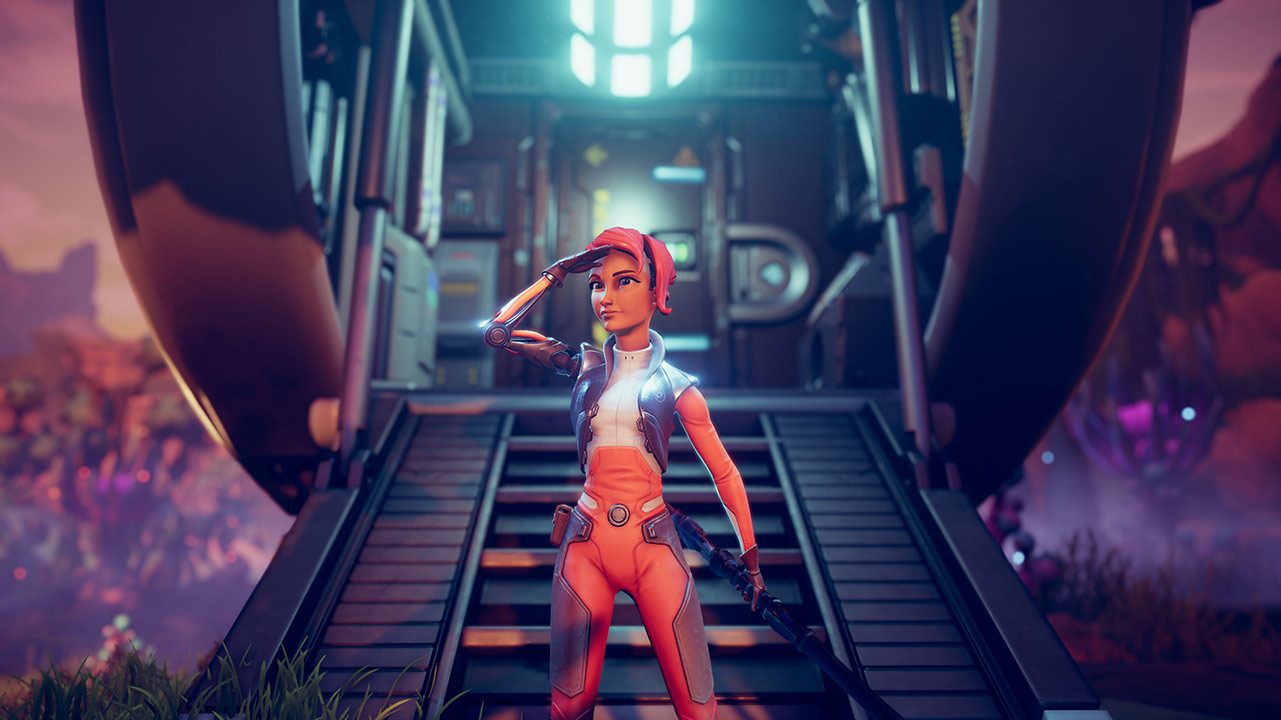
Unity animation image via learn.unity.com
4. Pricing
Unreal Engine has a special way of calculating fees. It allows developers to download the software and use the entire tools, and features for free. If you decide to monetize your game, you need to pay Unreal Engine a 5% royalty of revenue. However, the initial $1 million profit is free, this 5% royalty fee will be applied to the second million USD revenue.
While Unity has three packages available: Personal, Pro, and Enterprise. You can easily choose the suitable one for your project.
- Unity Personal is free for individuals or small companies with less than $100,000 in annual gross revenue. It includes all the core features of the Unity engine.
- Unity Pro costs $185 for a monthly subscription for small businesses or professional individuals. It includes additional features such as a customizable splash screen, performance reporting, and more cloud storage.
- Unity Enterprise is the most advanced plan designed for professional teams and studios. It provides all the features of Unity Pro along with additional services like analytics, collaboration, and more.
Unreal Engine vs Unity: Which game engine is better?
It can be said that Unreal Engine vs Unity both have their own strengths and weaknesses. It’s impossible to conclude which game engine is the most powerful. Choosing the right tool will depend on many factors such as project requirements, software usability, and price.
You should choose Unreal Engine if your project requires sharp rendering, smooth graphics, and high-end detailed effects. Besides, you also need to be knowledgeable about the C++ programming language to be able to take full advantage of its in-depth capabilities. In terms of price, if you are willing to spend 5% royalty on each of your game projects, then Unreal Engine is the perfect choice.
You should choose Unity if your project is a 2D or 3D game that does not require too many high-level effects. And you want to aim for a multi-platform release including mobiles, PCs, etc. Furthermore, you also want an easy-to-use game engine with C# language that doesn’t require much time to learn how to use. You will also have more options for packages with diverse prices to suit your game development needs with Unity.
Wrap Up
In conclusion, Unreal Engine vs Unity are two of the most prominent game development engines in the industry. Unreal Engine stands out for its stunning visual realism, advanced rendering capabilities, and high-quality graphics and effects. Unity, on the other hand, is proud of its ease of use, flexibility, 2D and 3D game development support.
Hope that this article will help you choose the most suitable game engine for your project and achieve the best results.
 If your computer configuration is not compatible with Unreal Engine or Unity, Chip Render Farm will help you with our remote rental server. Our 1/2/4/6x RTX 3090 servers cost only from $2.9, you will have total control over them. Connect with us right away to get the 100% bonus promotion.
If your computer configuration is not compatible with Unreal Engine or Unity, Chip Render Farm will help you with our remote rental server. Our 1/2/4/6x RTX 3090 servers cost only from $2.9, you will have total control over them. Connect with us right away to get the 100% bonus promotion.

